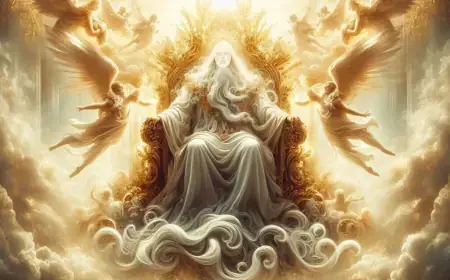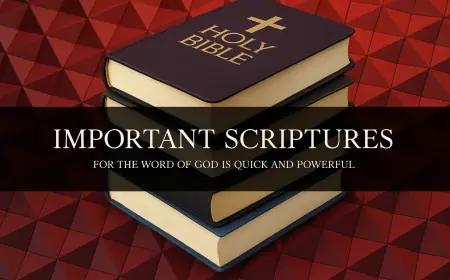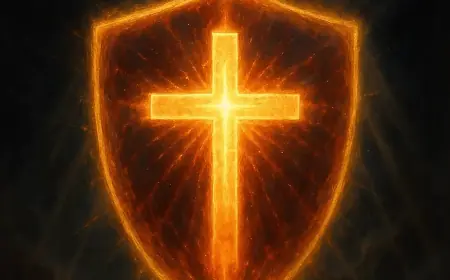The Historic Election of Pope Leo XIV
The coming years will reveal how Pope Leo XIV navigates the responsibilities of being not just a religious leader, but a global figure influencing millions.
POPE LEO XIV
POPE
LEO XIV
The First American Pope in History.
Today, May 8, 2025, the world witnessed a historic moment as Robert Francis Prevost, a 69-year-old American cardinal, was elected as the 267th Pope of the Roman Catholic Church. Taking the name Leo XIV, his election marks a significant shift in the Church’s leadership and direction. As the first Pope from the United States, he steps into a role with immense responsibility, inheriting both challenges and opportunities that will shape the future of 1.4 billion Catholics worldwide.
Election Process
The Papal Conclave, held in Vatican City, brought together 133 cardinals from around the globe to vote for the next leader of the Catholic Church. The process followed centuries-old traditions, with ballots cast in secrecy inside the Sistine Chapel. On the second day of voting, white smoke rose above St. Peter’s Basilica—signaling that a new Pope had been chosen. Thousands of people gathered in St. Peter’s Square, awaiting the official announcement.
Who Is Pope Leo XIV?
Born in Chicago, Illinois, in 1955, Pope Leo XIV spent much of his early career in Peru, serving as a missionary and parish pastor. His leadership in Latin America provided him with firsthand experience addressing issues of poverty, social justice, and the spiritual needs of marginalized communities. Before his election as Pope, he held several important Vatican roles, including serving as Prefect of the Dicastery for Bishops, where he oversaw the appointment of bishops worldwide.
Chicago’s Catholic Significance
Chicago has been a major center of Catholicism in the United States, and its religious influence may have played a role in shaping Pope Leo XIV’s journey to the papacy. The city is home to one of the largest Catholic populations in the country and has long been a hub for religious leadership, theological education, and social justice movements within the Church.
- The Archdiocese of Chicago: Established in 1843, it is one of the most influential Catholic institutions in the U.S., producing prominent leaders such as Cardinal Bernardin and Cardinal George.
- Catholic Theological Education: Chicago houses several seminaries and theological schools, including Catholic Theological Union, which have trained generations of priests and bishops.
- Social Justice & Community Engagement: The city has a deep tradition of Catholic involvement in social justice, particularly regarding labor rights, racial equality, and poverty relief—themes that align with Pope Leo XIV’s past work.
- Missionary Influence: Pope Leo XIV’s experience as a missionary in Peru resonates with Chicago’s history of supporting Catholic missionary efforts worldwide.
Given his Chicago roots and his exposure to diverse Catholic perspectives, it is likely that his leadership will reflect a blend of American Catholicism, pastoral care, and a commitment to global outreach.
The Significance of The Name Pope Leo XIV
By choosing the name Leo XIV, the new Pope pays homage to his predecessors, particularly Pope Leo XIII, who was known for his strong stance on workers’ rights, social justice, and theological advancements. The name choice may indicate Pope Leo XIV’s priorities, hinting at a focus on modernizing the Church, addressing social inequality, and continuing the mission set forth by Pope Francis.
Comparisons to Pope Francis
Pope Leo XIV follows Pope Francis, a leader renowned for his humble and compassionate approach to Church governance. While Francis was the first Jesuit Pope, Leo XIV is the first Augustinian Pope, highlighting a shift in religious orders at the helm of the Catholic Church. While Francis was widely seen as progressive, advocating for climate action, inclusivity, and economic justice, Leo XIV is expected to bring a moderate yet reform-driven approach to his leadership.
Challenges and Opportunities
As Pope, Leo XIV inherits a Church facing several pressing challenges:
- Clerical Abuse Scandals – Continuing efforts to ensure transparency and justice for victims.
- Financial Stability – Strengthening Church resources to support social initiatives.
- Inclusivity & Modernization – Balancing traditional doctrine with evolving global conversations.
- Global Conflicts & Poverty – Encouraging peacemaking efforts and supporting humanitarian initiatives.
His background as a missionary and bishop suggests that he will focus on pastoral care, community engagement, and theological education.
Conclusion
Pope Leo XIV’s election marks a new chapter for the Catholic Church. As he steps into this sacred role, his leadership will be closely observed worldwide. His vision for the Church will likely be shaped by his missionary experience, theological expertise, and commitment to social justice. The coming years will reveal how he navigates the responsibilities of being not just a religious leader, but a global figure influencing millions.
Reward this post with your reaction or TipDrop:
 Like
0
Like
0
 Dislike
0
Dislike
0
 Love
0
Love
0
 Funny
0
Funny
0
 Angry
0
Angry
0
 Sad
0
Sad
0
 TipDrop
0
TipDrop
0






























